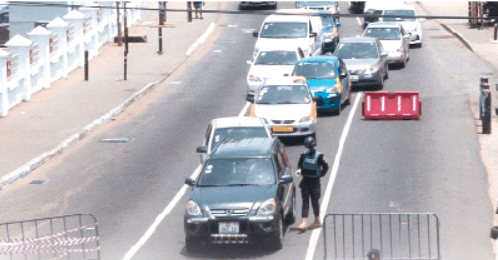A major hurdle to the country’s transit trade in the sub-region (ECOWAS) is the mounting of several security barriers along major trade routes, the Ghana Shippers’ Authority has noted.
For instance, the Authority has had cause to monitor such security barriers and the challenge it poses to smooth transit trade. A fact-finding trip undertaken on the Tema-Hamile corridor recorded not less than 55 Police and MTTD stops with some 40 being permanent and the remaining 15 being temporary barriers mounted by either the Forestry Commission, Customs or Immigration checkpoints.
While it is acknowledged that mounting security barriers on the roads ensure the safety of truck drivers and transit cargo, it also has the effect of being a bottleneck to smooth transit trade in the country. It is an open secret that these barriers result in undue stops by drivers while monetary extortion by some of these officers manning these points is the order of the day!
These are some of the real impediments to sub-regional trade in our part of the world and explains the slow pace of economic integration as envisaged in the ECOWAS protocol signed in 1975. If we are indeed serious about the regional and continental economic integration, then some of these challenges like the multiple police cum Customs/Immigration checkpoints have to be curbed to ensure the country is more competitive promotes economic activity.
The country has the potential to massively benefit from transit trade since landlocked countries like Mali, Burkina Faso and Niger utilize Tema port for its maritime trade that is why the Boankra inland port was conceived in the first place, for the easy facilitation of transit trade, yet the situation of several unnecessary security checkpoints along trade routes defeats the purpose.
Imagine onions coming in from Niger that is subjected to several stops at various checkpoints and the monies exchanged to induce the officers will only result in the produce becoming more expensive which is passed on to the consumer; and this is a hindrance to trade.
Now that AfCFTA is being fully implemented we need to address some of these bottlenecks to trade as identified.










